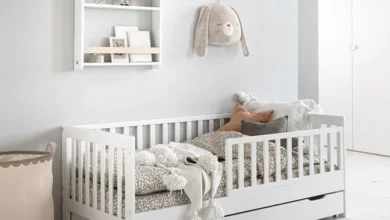Adoption’s Positive Impacts on the Adoptee

We often talk about the impact adoption has on a child. Unfortunately, this means jumping to the negatives. How adoption supposedly damages a child’s identity and self-esteem. Or how it can cause him or her grief, loss and physical and emotional trauma. But there is so much more to adoption. Countless good things. Positives. In fact, 9 out of 10 adoptees experience adoption’s positive impacts. These include, but are not limited to: a stable home environment, better mental and behavioral health and success in personal and educational endeavors.
An adoption agency provides children with the opportunity to have a life that their birth parents wanted for them. A life that is enriched with blessings and love.
Stable Home Environment
One of adoption’s positive impacts on a child is that it provides him or her with a stable home environment. Whether it is in terms of having the physical or financial resources that he or she would not have been able to receive. Or more financial and emotional support if he or she was born with special needs. Children who are adopted are loved and a part of a family, just like any other type of family model.
Statistics show that over 50 percent of adopted children eat dinner multiple times a week with their family, and adopted children who regularly have family dinners are at a lower risk for substance abuse. Overall, a stable home environment for an adoptee greatly affects other areas of their life such as behavioral and mental health, educational and personal successes.
Mental Health
Due to adoptive parent(s)’ financial stability, adoptees are more likely to benefit health-wise. Having adequate health insurance and regular checkups makes a big difference. Adoptive parents who can provide a healthy support system for emotional and mental needs is another way adoption positively impacts the adoptee. Through their parent(s)’ network of support (i.e. themselves, teachers, doctors, therapists, friends/family and other advocates), the adoptee has access to work through any mental health issues that may come up.
Behavioral Health
On average, children who live in a home of two parents, a single parent or same-sex parents exhibit fewer behavioral problems and have more stable and healthy relationships later in life. Even though ⅔ of adopted children have a two-parent home and ⅓ have single-parent or same-sex parent homes, each type of parent model can provide a stable family environment. This allows the child to gain self-confidence and have the ability to create healthy boundaries and work through trauma. Overall, this positively affects the child’s well-being and allows him or her to be just as well-adjusted as their peers. While each parent model comes with its own set of challenges, they all support the child having a more stable home environment, which, in turn, leads to better behavioral and mental health.
Educational and Personal Success
Adopted children are more likely to have better educational and personal success due to the financial security and support of their adoptive parents. Adoption allows them to reach whatever goal they set; therefore, giving them the opportunity to be involved in more extracurricular activities inside and outside of childcare/school. In addition, adopted children are likely to have help setting healthy goals and guidelines to be successful and accomplish more. Statistics show 69 percent of adopted children are engaged in school, care about doing well in school and regularly do homework.
Children thrive by having parents who lead by example. Parents who illustrate habits of having the choice and freedom to make decisions that help accomplish goals in life. Showing their child steps to achieve goals, stay motivated and how to handle situations of adversity that they may come across. Thus, impacting an adoptee positively by instilling healthy habits and objectives for them to take with them throughout life.
The Positive Impacts of Adoption
Overall, adoption has many outcomes on a child; however, the positives far outweigh the negatives. Having a stable home environment, strong behavioral and mental health, and educational and personal successes are only the tip of the iceberg. Many more exist. We encourage you to explore and learn all you can. Share with us any other ways you have seen adoption’s positive impacts on an adoptee in the comments below! We’d love to hear from you.
For, the truth is, adoption’s positive impacts on your child will last a lifetime, allowing your son or daughter to thrive and grow into a healthy, well-rounded and independent adult.




